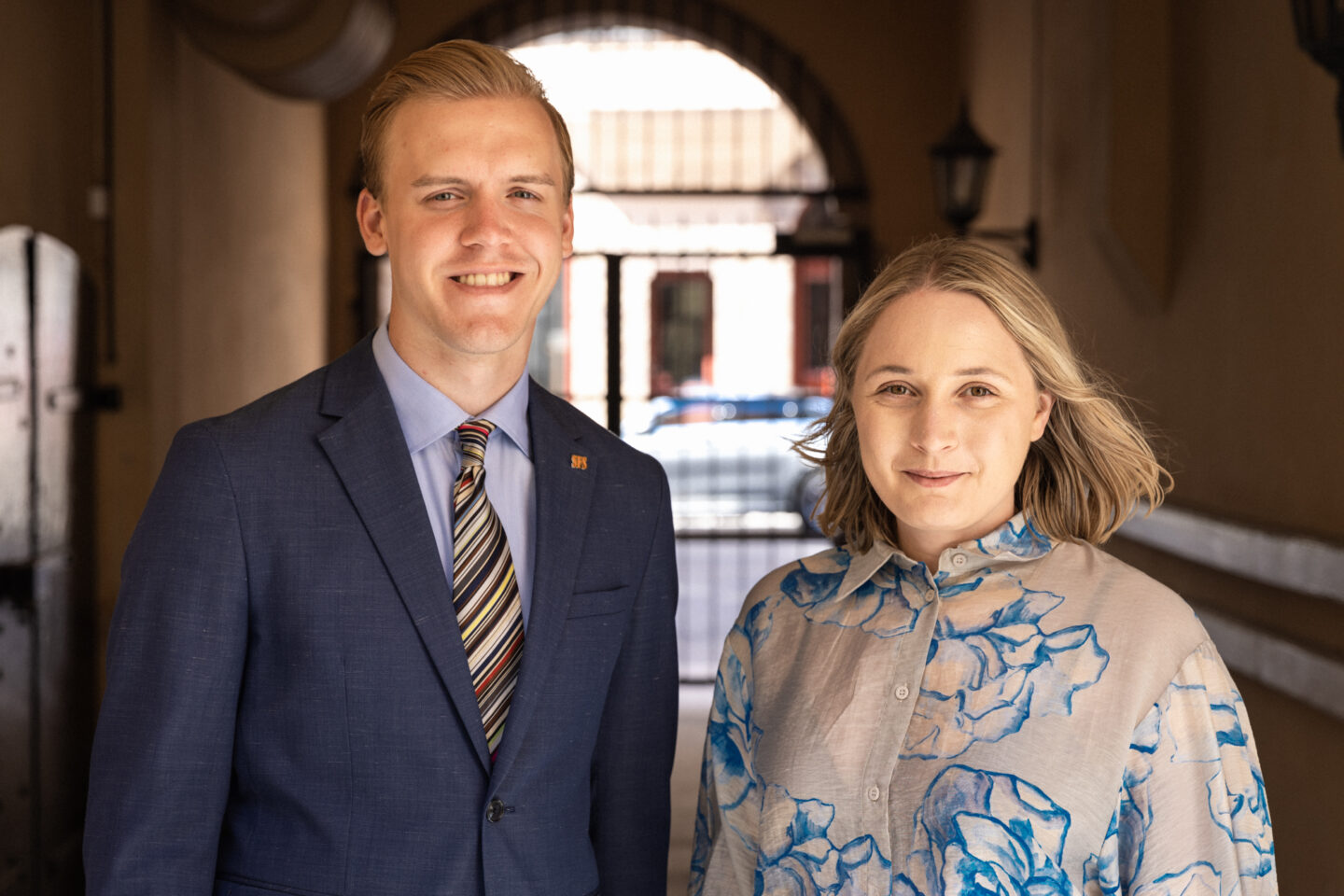On Monday 21 November, the research program was inaugurated Democracy and higher education at Uppsala University. During the opening, SFS gave a speech about the students' role in the work for democracy. Read the speech below.
Democracy. For students, it is a natural part of our DNA. Students take part and contribute to democracy in several ways.
Firstly, it takes place through education. By taking part in the knowledge and reflections that the research has generated, we are not only strengthened on an individual level, but also by collectively strengthening our skills to manage and manage society. In teaching, we meet each other in order to have a critical approach to difficult issues in dialogue.
Secondly, it happens through the students' participation in the scientific community. For us, student influence in Sweden is an important democratic function. It partly has a function that we participate and contribute to and develop the academy, but also that it prepares us for handling democratic processes in future professional life. Student influence has varied in form over time.
If we limit ourselves to Sweden, we can see that over a hundred years the student influence has gone from being a function of welfare and social care for students, where student unions provided health, daycare, insurance and housing, to be reformed with the expansion of the welfare society into a more formal movement that focuses on students' education and rights.
Our methods have become considerably more ordered thanks to a formal influence in the academic environment. We participate in the collegial environments and take responsibility for the activities together with teachers and TA staff.
During the day, several of the speakers talked about how democracy is not as obvious if we look around the world. We students notice that too. In many places that are going through crises right now, like Iran and Ukraine, we have fellow students who are fighting for their rights. In their struggle, we try to contribute with strength in solidarity.
Sometimes it becomes very tangible and touching. This summer we got to meet one of our counterparts from Belarus, a country that is only 100 miles from the Swedish land border in Ystad. In Belarus, student influence does not exist in formal form. It is suffocated. The representative of our counterpart in Belarus had had to flee the country because student union activists risk arrest. So the student influence is perhaps a matter of course in Sweden, and in the Nordics, but we see that around the world it is not. Students have an important role in the fight for a democratic society.
Having said that, we want to express our joy at this venture and that we had the great honor of being part of the program's Advisory board. We are pleased that this subject is being researched. It needs. There is a lot of research on other parts of our society, school, organizational theory, administration, law, welfare, etc., but it is good that we gain more knowledge about the scientific community, higher education and its role in society.
We believe that it makes us stronger, wiser and better equipped to meet the challenges of today and the future.
For our own part, we also appreciate getting a better knowledge of our sector. When we in the higher education sector take on the sometimes complex and extensive questions about higher education and the role of research in society, it requires a discussion that is based on a scientific basis.
